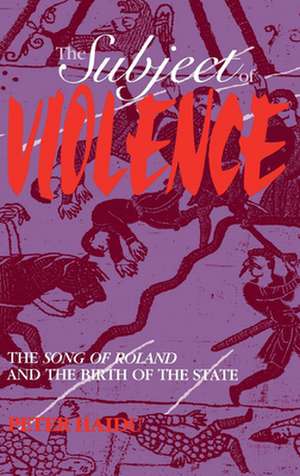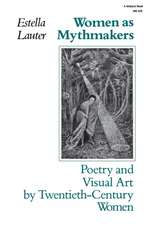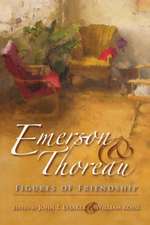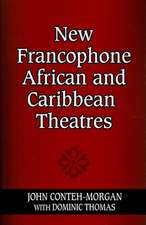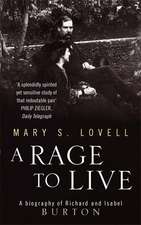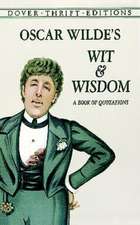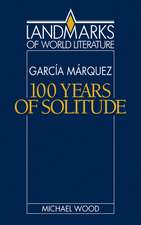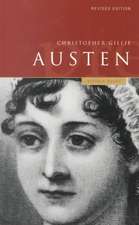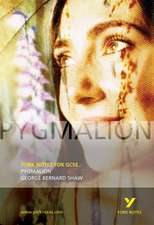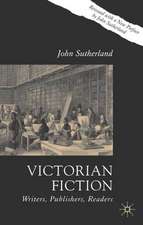The Subject of Violence – The Song of Roland and the Birth of the State
Autor Peter Haiduen Limba Engleză Hardback – 21 aug 1993
Preț: 360.61 lei
Nou
Puncte Express: 541
Preț estimativ în valută:
69.00€ • 72.04$ • 57.11£
69.00€ • 72.04$ • 57.11£
Carte tipărită la comandă
Livrare economică 04-18 aprilie
Preluare comenzi: 021 569.72.76
Specificații
ISBN-13: 9780253305480
ISBN-10: 0253305489
Pagini: 272
Ilustrații: Illustrations
Dimensiuni: 165 x 240 x 23 mm
Greutate: 0.56 kg
Editura: MH – Indiana University Press
ISBN-10: 0253305489
Pagini: 272
Ilustrații: Illustrations
Dimensiuni: 165 x 240 x 23 mm
Greutate: 0.56 kg
Editura: MH – Indiana University Press
Cuprins
Acknowledgments
Introduction
Violence: Modern Perspectives on the Medieval and the Modern
1. The Semiotization of Death: Open Text or Closed?
2. THe Gaze of the Other
The Sociological Presentation of the Self
The Intertextuality of the Peerage
3. Excursus I: Aesthetics, Economics, Politics
Beauty, Value, Violence
The Noble, the Knight, the Peasant
The Ideology of Knighthood
4. The Subsystem of the Professional Warrior: Courage, Contradiction, Irascibility
Ideological Value (I): The Constitution and Destitution of Subjects
Ideological Value (II): From Subject to Traitor?
Structure of Structures
5. The DestinatorÕs Multiple Roles: Syncretism or Contradiction?
The Culpable Guarantor
From Individual to Role
6. Excursus II: The Play of Absence and Presence in Medieval Kingship
Carles li reis,...
...nostre emperere magnes
Reis and Emperere Textualized
7. Funerary Rituals
The Unreintegrated Mourner
The Death of Aude, or the Refusal of Exchange
The Transformative Performance
8. Textual Coherence and the Dialectics of Ideology
Textual Coherence: The Narrative
Narrative Programs
Actants
9. GanelonÕs Trial, or the MonarchÕs Revolution
The Actorial Level: Inexorable Structure
The Actantial Distribution
10. Conclusion
The Chanson Ends with the Indeterminacy of Non-Exclusive Disjunction
The Chanson Produces Limited and Specifiable Significations
The Subject of Violence
Nomadic Violence, Sedentary Economics, and the Birth of the State
Notes
Bibliography
General Index
Index of Proper Nouns
Index of Foreign Terms and Phrases
Introduction
Violence: Modern Perspectives on the Medieval and the Modern
1. The Semiotization of Death: Open Text or Closed?
2. THe Gaze of the Other
The Sociological Presentation of the Self
The Intertextuality of the Peerage
3. Excursus I: Aesthetics, Economics, Politics
Beauty, Value, Violence
The Noble, the Knight, the Peasant
The Ideology of Knighthood
4. The Subsystem of the Professional Warrior: Courage, Contradiction, Irascibility
Ideological Value (I): The Constitution and Destitution of Subjects
Ideological Value (II): From Subject to Traitor?
Structure of Structures
5. The DestinatorÕs Multiple Roles: Syncretism or Contradiction?
The Culpable Guarantor
From Individual to Role
6. Excursus II: The Play of Absence and Presence in Medieval Kingship
Carles li reis,...
...nostre emperere magnes
Reis and Emperere Textualized
7. Funerary Rituals
The Unreintegrated Mourner
The Death of Aude, or the Refusal of Exchange
The Transformative Performance
8. Textual Coherence and the Dialectics of Ideology
Textual Coherence: The Narrative
Narrative Programs
Actants
9. GanelonÕs Trial, or the MonarchÕs Revolution
The Actorial Level: Inexorable Structure
The Actantial Distribution
10. Conclusion
The Chanson Ends with the Indeterminacy of Non-Exclusive Disjunction
The Chanson Produces Limited and Specifiable Significations
The Subject of Violence
Nomadic Violence, Sedentary Economics, and the Birth of the State
Notes
Bibliography
General Index
Index of Proper Nouns
Index of Foreign Terms and Phrases
Descriere
Proposes a provocative new reading of the medieval French Song of Roland and its role in changing a world of violent independent warriors into the more contemporary world of citizens subjugated to the state. A study of signal importance to literary and historical scholarship of the Song and of the birth of modern Europe.
